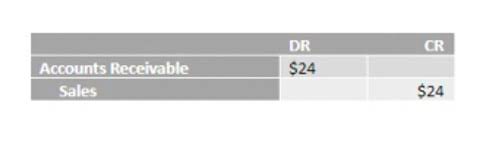
Many invoice financing companies can make you an offer and transfer you funds within a few days. If you think invoice financing can meet your needs, you’ll want invoice financing bank to find the right lender and start the application process. The collateral used for invoice lending is most often the open accounts receivable used to secure funding.
How does invoice financing work for a company?
They typically perform a unearned revenue background check on both the company and its customers. However, lenders are more concerned with your customers’ creditworthiness since they’re the ones repaying the invoices. Invoice financing is often easier to get than traditional financing, because your loan or line of credit is automatically secured against your invoices.

Improve cash flow and close your books faster with Ramp

With invoice factoring, startups usually receive a Bookstime lump sum of cash upfront from the invoice factoring company, which is then responsible for collecting payments from the end customer. Because the invoices themselves serve as collateral on the capital you borrow, invoice financing is often easier to qualify for than other types of small business loans. In this way, invoice financing is a great funding option for B2B and service-based businesses—as it alleviates cash flow problems due to unpaid customer invoices. Invoice financing, sometimes called accounts receivable financing, is a form of asset-based financing in which business owners receive an advance of capital in exchange for their unpaid invoices. Typically, invoice financing companies can advance you up to 85% of the value of your invoices and you receive the remaining 15% (minus fees) when your invoices are paid.
Is Invoice Financing Right For Your Business?

First, you send your clients the invoices due to you, then take the unpaid invoices to the factoring company. The factoring company buys the invoices from you, offering 70 percent to 90 percent of the total amount. With invoice discounting, the lender will advance the business up to 95% of the invoice amount. When clients pay their invoices, the business repays the lender, minus a fee or interest.
How to Qualify for Invoice Financing
- Depending on the invoice financing solution you choose, you should also be able to get paid much sooner than you would by using a factoring service.
- Invoice financing is a type of alternative business loan not usually found with traditional banks and credit unions.
- • Other financing options include inventory financing, merchant cash advances, and long-term business loans — each with different structures, costs, and suitability depending on the business needs.
- Invoice financing can be structured as a loan or as a line of credit, sometimes called an accounts receivable line of credit.
- A funding solution tailored for businesses with ongoing or long-term contracts, such as subscriptions, service providers, construction companies, or contractors.
- Just like other forms of business loans, invoice financing is not for everyone.
The purchasing company is given an invoice that has the total amount due and the bill’s due date. However, offering credit to clients ties up funds that a business might otherwise use to invest or grow its operations. To finance slow-paying accounts receivable or to meet short-term liquidity, businesses may opt to finance their invoices.
Is invoice financing risky?

Instead of waiting for 30 days to receive payment, the business can choose to sell its unpaid invoice to an invoice financing company. Applications for invoice financing involve applying to a lender or financing company. The startup will need to provide copies of the outstanding invoices that the business wishes to finance.
